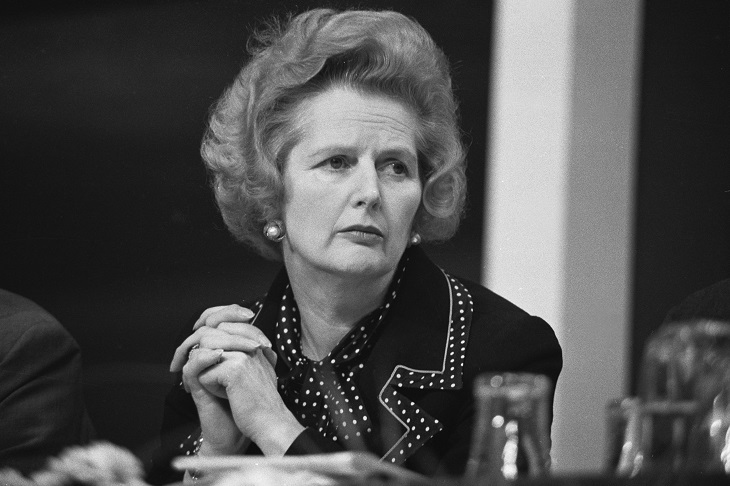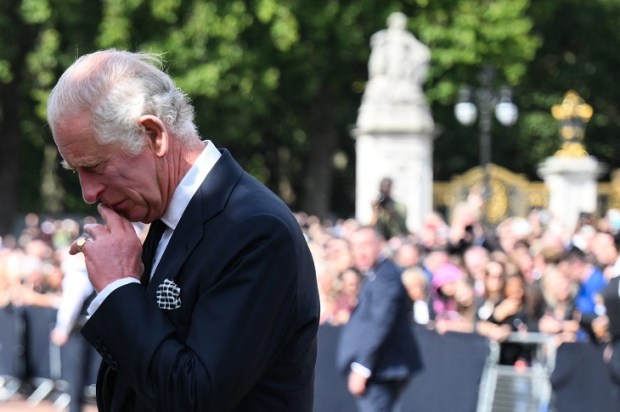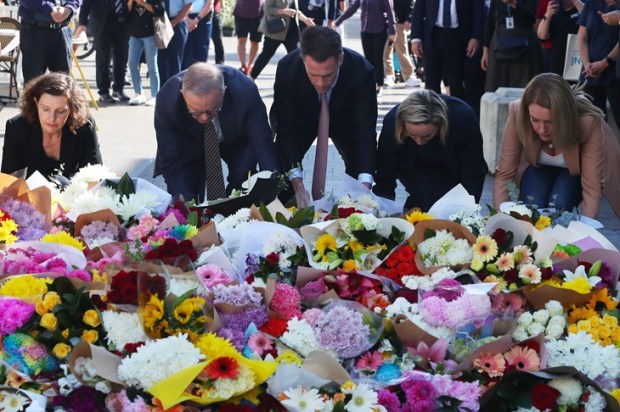One knows better than to compare today’s politicians to great figures of the past. But in the case of Liz Truss, we were positively willing a Margaret Thatcher to rise reincarnate. That is because the times require – quite desperately – a new Mrs Thatcher.
It wasn’t Thatcher’s economic acumen that made her a force to be reckoned with. Though that acumen was considerable, it was her courage that allowed Britain’s reformers to carry the day, often in the face of political timidity from men who should have known better. As she said famously in the Sunday Times in 1981, ‘Economics are the method; the object is to change the heart and soul.’
Few would argue, after decades of economically regressive British governments, that the country’s heart and soul are in better condition than when Mrs Thatcher left office. Someone (anyone!?), needed to take up the challenge, lest the spirit of low-tax, pro-growth politics die out forever in the 21st Century.
This, of course, brings us to Truss, and her now-fatal battle with seemingly everyone, but first and foremost with the failed legacy of Big Government Toryism; secondly, with the Bank of England and its Governor Andrew Bailey; thirdly, with the frightened milieu of her own MPs and their giddy amplification of hostile popular opinion. As the latter was remarked upon by that famed Conservative hater John Stuart Mill, ‘Often true, but seldom or never the whole truth.’
Truss’s initial instinct to unshackle Britain from its metastasizing high-tax tumors was a sound one. Indeed, on the eve of her election to the Tory leadership, her well-flagged plans received cautious endorsement from all the right quarters, and milquetoast rebuke from opponents. Boris Johnson’s plan to ‘spend the poor up to parity’ had failed dismally. Truss offered a genuine alternative.
Most media outlets initially found a steady equilibrium in evaluating ‘trickle down Truss’. On September 7, three days after taking the Prime Ministership, Reuters struck about the average critical tone in their reportage. On Truss’s plan to return to a Reagan-Thatcher orthodoxy, they opined merely that the results of those landmark reforms in the 1980s ‘had been disputed ever since’.
That coolness of temper disappeared in the days following Friday September 23, when bond yields rocketed and the pound plummeted, following Chancellor Kwasi Kwarteng’s mini-budget. Temperatures rose further upon the dramatic intervention from Bank of England Governor Andrew Bailey, unleashing his bond-buying spree in response to that ‘bleak’, if not ‘black’ Friday.
All of a sudden, Truss, most would have you believe, was an incompetent fool, hell-bent on sending Britain into permanent slumhood, all to put a few extra dollars in Tory mates’ pockets. ‘Thanks to Kwarteng and Truss, you have just got a lot poorer’, shrieked the Guardian.
And strategically, perhaps indeed she was foolish. But at that stage of the crisis, no one could dismiss her resolve. Further, her immediate scapegoating by the media spoke less about her instincts, and more about a culture wholly allergic to the idea that any short-term pain might be tolerable, in the name of long-term economic gain.
The truth is that in late September, Truss and Kwarteng had caught badly-leveraged pension funds, and the Bank of England itself, napping. Though the debt shock of Kwarteng’s mini-budget can’t be ignored, Truss and Kwarteng did not themselves create the conditions that put markets on edge. Any wriggle room to adapt to temporary investor quibbles was surrendered in the months leading up to the leadership change, when underlying inflation was not adequately tempered.
Indeed, the crisis had somewhat fortuitous timing for the Bank of England. Any deleterious consequences from its refusal to follow the US Federal Reserve and increase rates by three-quarters of a percent (it opted instead for half a percent) at its meeting on September 22, were handily disguised by the next day’s events. The ructions set upon markets by the freshman Chancellor’s Parliamentary despatch on September 23 meant that Truss and Kwarteng would shoulder all the blame.
Though the UK’s Central Bank is by no means alone in its failure to contain inflation, the peculiar combination with British pension funds’ exposure to complex derivatives optimised for low-interest rate, high-currency value conditions, primed the fiscal cat to scatter investors’ pigeons. As Nasdaq.com reported last Saturday, the behavior of fund investors ‘had amplified risks that appeared hidden during a decade of low interest rates’.
Nasdaq further sounded the alarm on pension funds’ subsequent delinquency in responding to changing market conditions. ‘When rates began rising in 2022 and warnings about risk got louder, [pension] schemes were slow to act.’
It’s not like Truss didn’t warn them. She’d campaigned for two solid months on precisely the kind of action she then actually took. At an online campaign event on July 15, Truss had released detailed plans of both promised tax cuts and energy relief for consumers. Both were endorsed by her party base. It was clear many Britons were prepared to take some risks to upend the prevailing orthodoxy.
Markets did not share the Tory grassroots optimism. On September 29, amidst exploding tensions, Truss was pushed headlong toward her ‘Iron Lady’ moment. Now fiscally committed, retreat was not an option – however ham-fisted Kwarteng may have been in the delivery. Truss reminded Britons that all life-saving surgery necessitates temporary, and sometimes painful, flesh wounds.
But subsequently, in the face of mounting rancor, Truss failed to harden. Her long campaign to undermine the rotten thinking of successive Tory governments came not to a screeching halt, but met its death by a thousand embarrassing cuts. By October 1, her language had softened. On October 3, Kwarteng U-Turned on tax cuts, and by October 12, Truss ruled out reductions in government spending. By October 14, Kwarteng was gone, and by October 16, so had £32 billion, or three-quarters of his total proposed tax cuts – along with the wind from Truss’s sails.
Much of the tumult Liz Truss stirred up came down to her political insufficiency on either side of her proposed economic equation. On the institutional side, (Treasury and BOE) she lost quickly, thanks in part to her recklessness in not funding tax cuts with a commensurate slashing of government spending, but also due to predominating market circumstances not of her own making. This appeared to fatally demoralise her: on the public side, her party’s fears then overwhelmed her – fears held in proxy for popular opinion somewhat untethered from the reality Britain’s economy faces.
The capitulation on tax cuts for top earners is signal.
The internal pressure Truss wilted to in abandoning the planned reduction in the 45 per cent top marginal tax rate was born not of newfound economic prudence, but from fear of bad optics. No one on the jittery Tory benches had the bottle to try explaining to the public why a modest tax cut for the wealthy might do long-term good for the country, amidst an oncoming winter of discontent.
Michael Gove said it was immoral. Perhaps, Mr Gove, but so is entrenching broken settings on a backwater economy in which no ordinary citizen can thrive: Britain has ranked 31st out of 35 OECD countries in productivity growth over the past decade – it is in danger of entering the ‘relegation zone’ of world economies.
Along with Truss, the cuts are now gone, and for what real return? The move saved the government a miserly £2 billion, out of a projected £72.4 billion in forthcoming debt issuance it needed to budget for under her plan.
Perhaps the best one can say is that Truss knew instinctively that what she had pejoratively labeled as ‘Treasury Orthodoxy’ was drowning the British economy. She knew also that she had one realistic shot at overcoming it, and so appointed a trusted ally in Kwarteng to fire the gun.
But what she lacked was the strategic competence and political faith to see that one shot through. Assailed by the sclerotic thinking she railed against, she handed back what she really wanted, and capitulated to what the mob demanded.
Truss’s missteps leave Britain’s economy wobbling away toward an uncertain future. But worse, her latter-day ideological timidity extinguishes any semblance of hope for the politics of supply-side economics.
As Joe Biden’s America comprehensively abandons its claim to a pro-growth future, Truss’s political failure leaves the world’s prospects of a post-pandemic supply-side renaissance looking grim indeed.
Ben Crocker’s is a Europa fellow at Common Sense Society. His Substack is Crocker’s Columns.
Got something to add? Join the discussion and comment below.
Get 10 issues for just $10
Subscribe to The Spectator Australia today for the next 10 magazine issues, plus full online access, for just $10.


























Comments
Don't miss out
Join the conversation with other Spectator Australia readers. Subscribe to leave a comment.
SUBSCRIBEAlready a subscriber? Log in